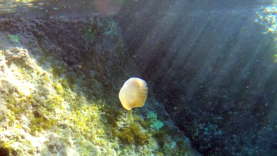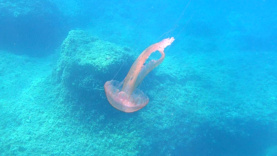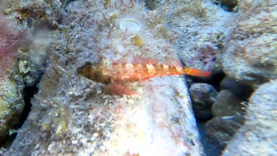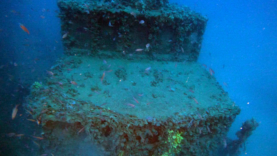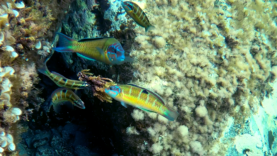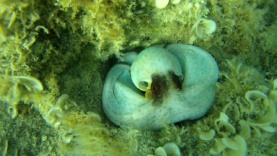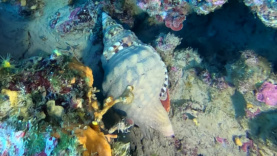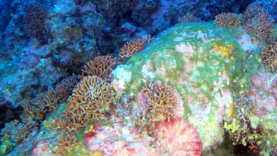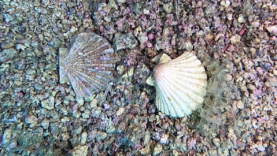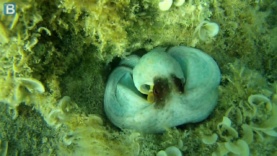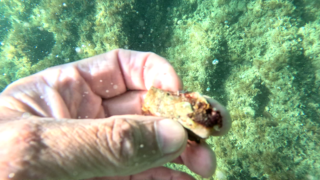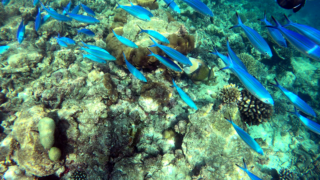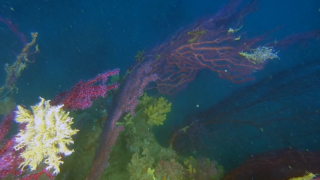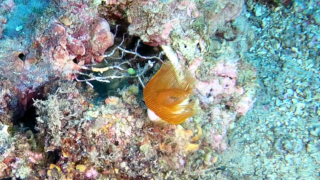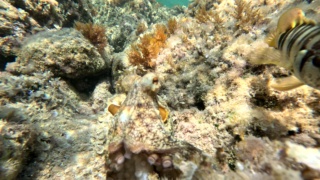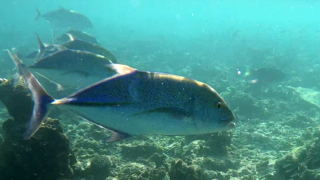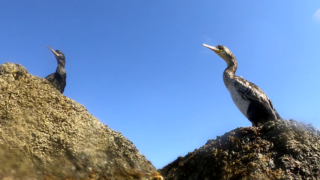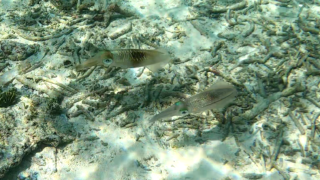Octopus vulgaris - Common octopus
In this video
We have filmed Common octopus, Octopus vulgaris, several times on intotheblue.it but each encounter with this cephalopod mollusk is always unique and different from the previous ones. In this case, in fact, the octopus was so well camouflaged on the seabed that it was not possible to see it from just a few meters below the surface. I found it when I got so close that it scared him and then changed color since the camouflage was ineffective.
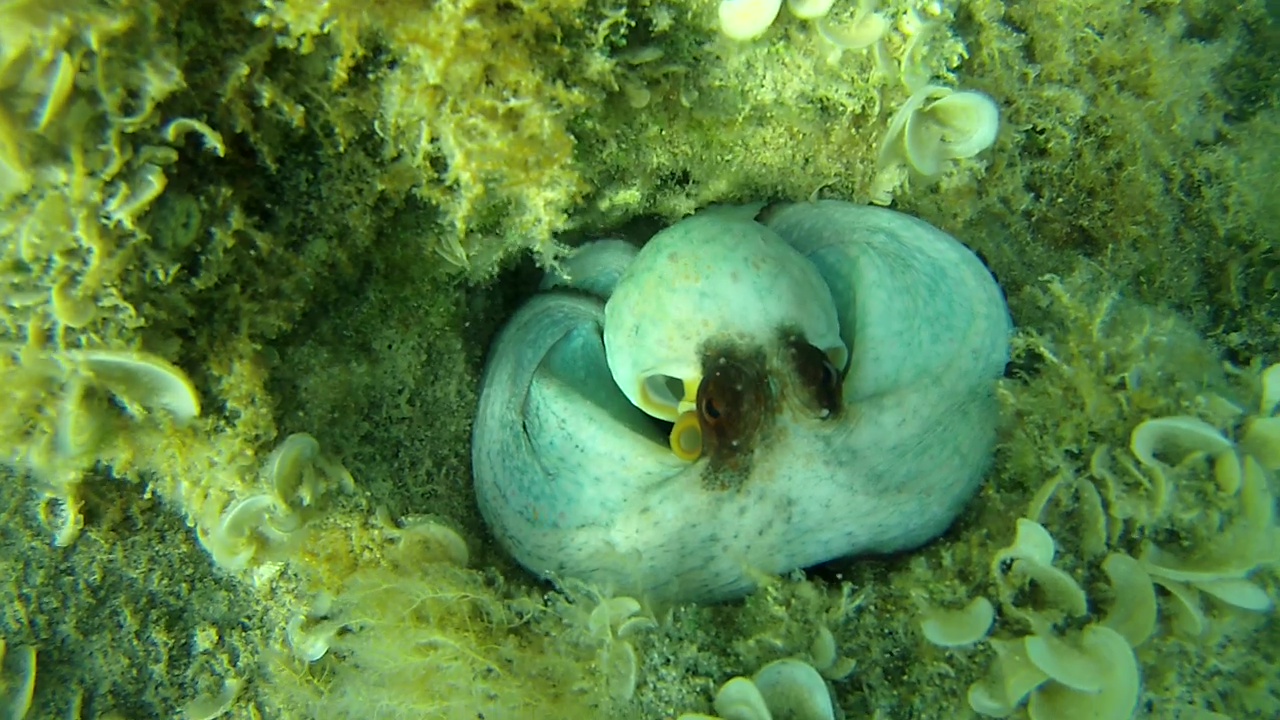
Octopuses are endowed with an impressive camouflage ability but when this is now useless they resort to other weapons such as turning white and appearing larger than they really are in order to seem more threatening, however these are always defensive strategies and never attacks towards a possible intruder or predator. The last one is always the escape behind a nice splash of ink in search of a safer shelter than the previous one.
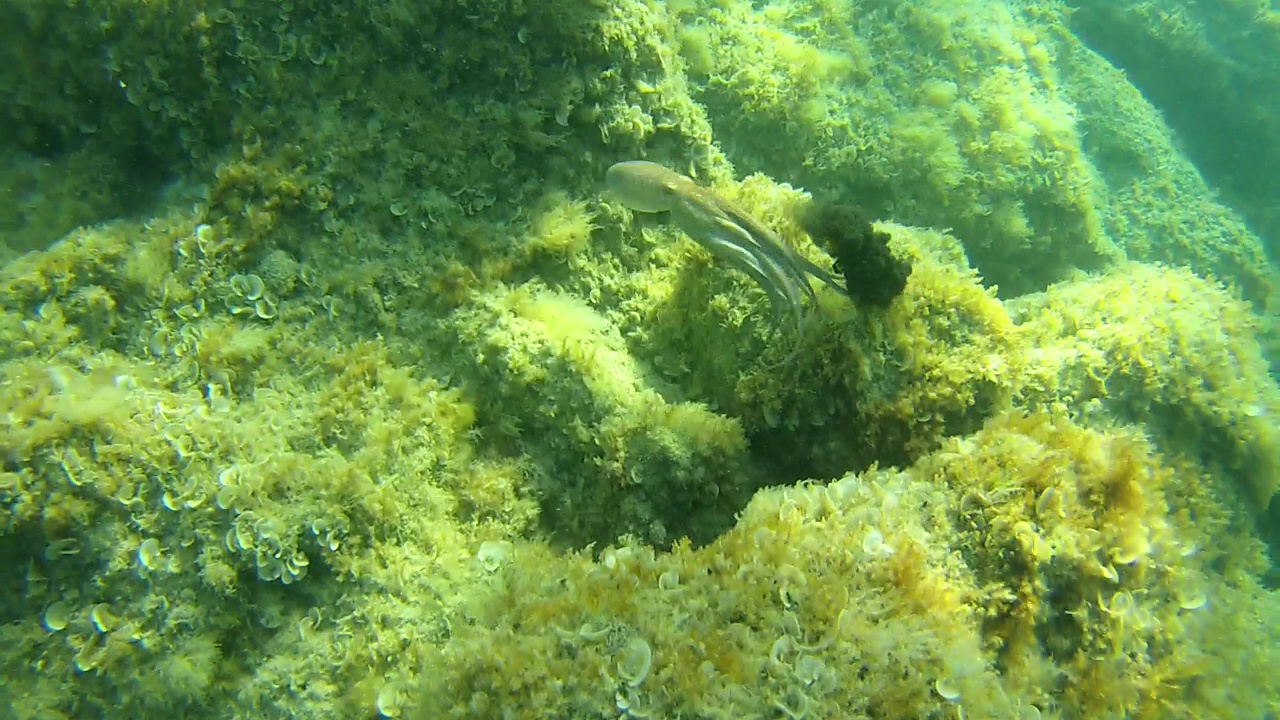
We remind you that the animals and marine species published on this website are all alive and that we do not publish fishing and catching videos, but images and videos of marine species in their natural habitat and the conditions and criticalities in which we find them.
Common octopus (Octopus vulgaris Cuvier, 1797) or octopus, erroneously called polyp (completely incorrect name from a zoological point of view), is a cephalopod of the Octopodidae family.

Habitat and distribution
It is a cephalopod mollusk that is very common in shallow waters, no deeper than 200 metres. It prefers rough, rocky substrates, because they are full of hiding places, fissures and small caves in which to hide: the absence of an endo- and exoskeleton allows it to take any shape, and to pass through very narrow tunnels.
Present in all seas and oceans, it is also widespread in the Mediterranean Sea. In the Mediterranean it is mainly fished in two different periods of the year: from September to December (in good quantities, even if still small) and from May to July (period in which it is larger).
https://it.wikipedia.org/wiki/Octopus_vulgaris
Finally, let us remember that almost all cephalopods produce and use ink as an extreme defense weapon. However, they have inks of a slightly different color depending on the species; generally, octopuses secrete black ink, while squid one is dark blue and that of cuttlefish is brown.

